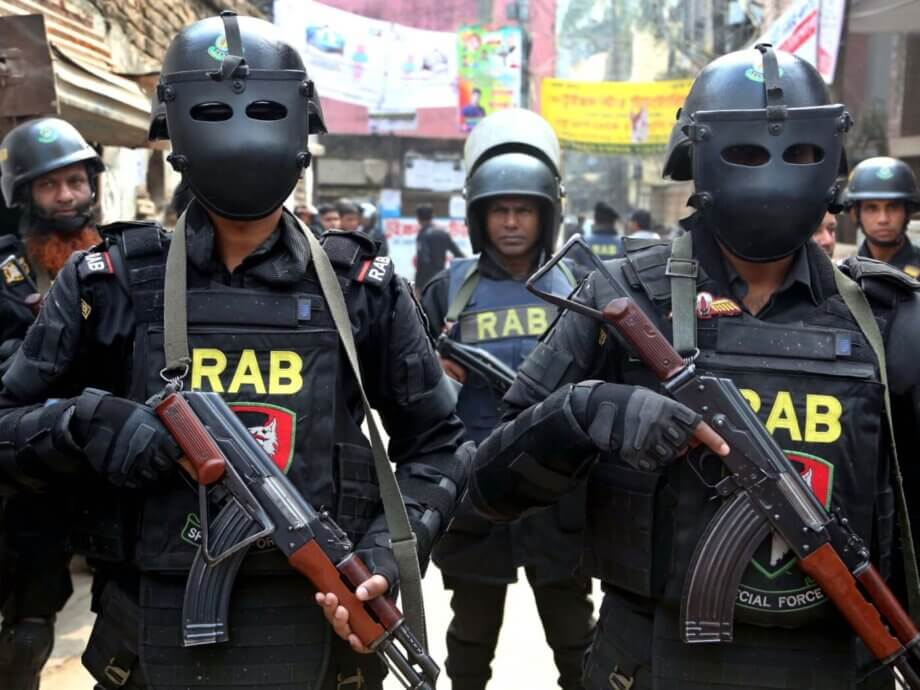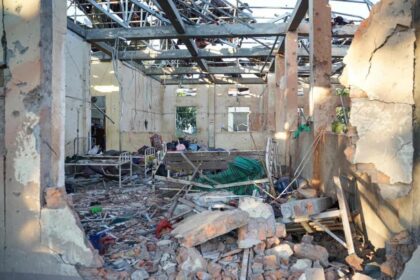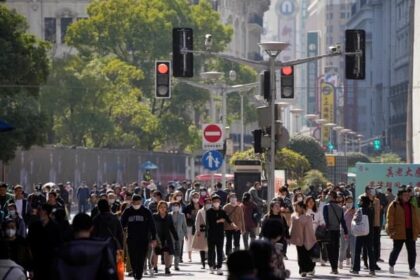Introduction: The Weaponisation of Counterterrorism Laws in Bangladesh
In recent years, Bangladesh has faced intense scrutiny from both domestic and international observers over its use of counterterrorism laws, particularly the Anti-Terrorism Act of 2009. A commission of inquiry, established after the fall of the Sheikh Hasina government in August 2024, has revealed a disturbing pattern: the Anti-Terrorism Act was systematically abused to prosecute victims of enforced disappearance, often as a tool to suppress political dissent and silence opposition voices. This article examines the findings of the commission, the mechanisms of abuse, the role of security agencies, and the broader implications for human rights and the rule of law in Bangladesh.
- Introduction: The Weaponisation of Counterterrorism Laws in Bangladesh
- How the Anti-Terrorism Act Became a Tool for Repression
- Mechanisms of Abuse: Coercion, Fabrication, and Judicial Complicity
- The Role of Security Agencies in Enforced Disappearances
- Secret Detention Centers: Infrastructure of Abuse
- Impact on Victims and Families
- International Response and Calls for Reform
- Broader Implications: Erosion of Civic Space and Rule of Law
- In Summary
How the Anti-Terrorism Act Became a Tool for Repression
The Anti-Terrorism Act, enacted in 2009, was intended to provide Bangladeshi authorities with robust legal means to combat genuine threats of terrorism. However, the commission’s second interim report, submitted in June 2024, found that the law was most frequently invoked not against terrorists, but against individuals who were forcibly disappeared by state forces. Of 309 victims of enforced disappearance analyzed, 198 were charged under the Anti-Terrorism Act—far more than under any other statute. Other laws, such as the Explosive Substances Act, Arms Act, Information and Communication Technology Act, Digital Security Act, and Special Powers Act, were also used, but to a lesser extent.
The commission’s analysis revealed a pattern of systemic criminalisation, often without individualized evidence. The law’s broad and vague definitions allowed authorities to frame political opponents, activists, and critics as threats to national security, justifying their detention and prosecution under the guise of counterterrorism.
Political Context and Timing of Prosecutions
One of the most telling findings was the correlation between political events and the filing of anti-terrorism cases. Surges in prosecutions aligned with periods of heightened political unrest, such as the 2018 general election, mass protests against foreign dignitaries, and opposition mobilizations. For example, 2018 saw a significant spike in cases, coinciding with a crackdown on opposition parties. In 2022, increased activity by the Bangladesh Nationalist Party (BNP) and Jamaat-e-Islami led to sustained filings, while 2021’s cases reflected the government’s response to protests against Indian Prime Minister Narendra Modi’s visit.
Conversely, when opposition activity shifted to direct street confrontations in 2023, anti-terrorism charges were less frequently used, and the number of new cases declined. After the 2024 general elections, filings dropped further as political activities waned. This ebb and flow suggest that the application of anti-terror laws was far from neutral; rather, it was closely tied to the government’s efforts to suppress dissent during politically sensitive periods.
Mechanisms of Abuse: Coercion, Fabrication, and Judicial Complicity
The commission’s report details a range of coercive practices used to extract confessions and manufacture cases against victims of enforced disappearance. Victims were often held in secret detention centers, subjected to torture, and threatened with further harm unless they signed confessional statements dictated by their captors. These statements, known as Section 164 confessions, were then presented before magistrates as voluntary admissions of guilt.
Forced Confessions and Lack of Legal Safeguards
Testimonies collected by the commission reveal a disturbingly consistent pattern: victims were forced to memorize scripts written by law enforcement officers, rehearsed under duress, and then recited in court. Many were denied access to legal counsel, and magistrates frequently failed to verify whether confessions were made voluntarily. In some cases, victims were forced to speak in the presence of their torturers, with no opportunity for private communication with the magistrate.
One 19-year-old victim recounted being kept in a secret prison for over a month by the Counter Terrorism and Transnational Crime Unit (CTTC) in 2020. He was made to rehearse his confession repeatedly and, despite telling the magistrate he had been beaten and forced to confess, the statement was still recorded against him. Another victim, disappeared for a year by the Directorate General of Forces Intelligence (DGFI) and Rapid Action Battalion (RAB), was presented to the court freshly shaved and in clean clothes to create the appearance of normalcy, while the reality of his ordeal was ignored.
Judicial Backlogs and Mass Acquittals
The commission found that the judicial system’s handling of anti-terrorism cases was influenced by administrative pressures rather than the merits of the evidence. Cases approaching the five-year mark were often disposed of in bulk to avoid the appearance of backlog, with most resulting in acquittals. Of 794 resolved cases from 2017 to 2024, only 52 resulted in convictions—a conviction rate of just 7 percent. This abysmally low rate suggests that many cases lacked prosecutorial merit from the outset, raising serious questions about the standards used to initiate prosecutions.
The Role of Security Agencies in Enforced Disappearances
The commission’s investigation identified several state agencies as principal perpetrators of enforced disappearances: the Bangladesh Police (including the Detective Branch and Special Branch), Rapid Action Battalion (RAB), Counter Terrorism and Transnational Crime Unit (CTTC), DGFI, National Security Intelligence (NSI), and Border Guard Bangladesh (BGB). Each played a distinct role in the machinery of repression, often operating beyond their legal mandates and with little accountability.
Rapid Action Battalion (RAB): From Counterterrorism to Political Death Squad
Originally established to combat serious crime and terrorism, RAB quickly became synonymous with human rights abuses, including extrajudicial killings, torture, and enforced disappearances. The commission documented hundreds of cases involving RAB, with victims often found dead or remaining missing. RAB’s intelligence wing conducted covert operations, detaining individuals in secret facilities such as the notorious Task Force for Interrogation (TFI) cell, where detainees were subjected to relentless torture.
International scrutiny intensified after the United States imposed sanctions on RAB and its commanders in 2021, citing gross human rights violations. Despite these measures, RAB’s legacy of abuse continues to undermine public trust in law enforcement and poses a significant barrier to democratic reform.
Police and Detective Branch: Politicisation and Impunity
The Bangladesh Police, particularly its Detective Branch, was found to have played a central role in enforced disappearances, especially during periods of political unrest. The police became increasingly politicized, functioning as an enforcer of government policy rather than a neutral institution. Victims included political activists, students, teachers, businesspeople, and government critics. Torture in custody was pervasive, and extrajudicial killings—often labeled as “crossfire” incidents—became a hallmark of police operations.
CTTC and DGFI: Intelligence Agencies as Instruments of Repression
The CTTC, established in 2016, and the DGFI, Bangladesh’s principal military intelligence agency, were both implicated in enforced disappearances, torture, and arbitrary detention. The commission found that these agencies often operated secret detention centers, such as the infamous “Aynaghor” (House of Mirrors), where detainees were held incommunicado and subjected to extreme abuse. The lack of oversight and the agencies’ expansion into civilian affairs contributed to a culture of impunity and the erosion of democratic governance.
NSI and BGB: Surveillance and Cross-Border Abductions
The NSI, Bangladesh’s main civilian intelligence agency, and the BGB, responsible for border security, were also implicated in enforced disappearances. The NSI was accused of monitoring and suppressing political opposition, civil society, and journalists, often without legal oversight. The BGB was linked to cross-border renditions, with victims sometimes handed over to foreign security agencies, further complicating efforts to ensure accountability.
Secret Detention Centers: Infrastructure of Abuse
The commission identified at least 16 secret detention centers across Bangladesh, including facilities in Dhaka, Chattogram, Narayanganj, Rajshahi, and other cities. These centers, often located within police or intelligence agency compounds, were used to hold victims incommunicado for weeks or months. Methods of torture included waterboarding, electrocution, hanging victims upside-down, and psychological abuse. The existence of these centers underscores the systematic nature of enforced disappearances and the complicity of multiple state agencies.
Impact on Victims and Families
The human cost of these abuses is profound. Victims of enforced disappearance endured torture, psychological trauma, and the stigma of being labeled as terrorists or criminals. Many were targeted for expressing dissent online, participating in protests, or simply being affiliated with opposition parties. Families faced not only the anguish of not knowing the fate of their loved ones but also significant financial burdens, with average legal expenses reaching Tk 7 lakh per case.
Some victims never returned; others were released but silenced by fear. The commission verified and reviewed over 1,350 cases of enforced disappearance, with at least 345 individuals still missing. The lack of justice and accountability has left families in a state of perpetual uncertainty and grief.
International Response and Calls for Reform
International human rights organizations, including Human Rights Watch, Amnesty International, and the International Federation for Human Rights (FIDH), have repeatedly condemned Bangladesh’s use of anti-terrorism laws to silence dissent and perpetrate enforced disappearances. The United Nations and donor governments have called for independent investigations, the disbandment of abusive units like RAB, and comprehensive reforms to restore the rule of law.
Recent Political Developments and Legislative Changes
Following the ouster of the Hasina government, the interim administration led by Nobel laureate Muhammad Yunus pledged to restore democratic principles and respect for human rights. However, recent legislative initiatives, including a temporary ban on the Awami League and amendments to the Anti-Terrorism Act, have drawn criticism for mirroring the repressive tactics of the previous regime. Human Rights Watch and other groups warn that these measures risk undermining fundamental freedoms and failing to deliver justice for past abuses.
The commission of inquiry on enforced disappearances has recorded over 1,676 complaints, with its preliminary findings describing a “systematic design” behind the disappearances, mostly targeting political opponents. The commission has called for urgent reforms, including the establishment of independent oversight mechanisms, the prosecution of perpetrators, and support for victims’ families.
Broader Implications: Erosion of Civic Space and Rule of Law
The abuse of the Anti-Terrorism Act and the practice of enforced disappearances have had a chilling effect on civic space in Bangladesh. Journalists, human rights defenders, and ordinary citizens have faced harassment, surveillance, and violence for speaking out against government abuses. Laws such as the Digital Security Act and the Cyber Security Act have been used to criminalize online dissent and restrict freedom of expression.
Despite international sanctions and advocacy, abuses have persisted, with security forces often acting with impunity. The lack of accountability has eroded public trust in institutions and undermined the foundations of democracy and the rule of law.
In Summary
- The Anti-Terrorism Act of 2009 was systematically abused by Bangladeshi authorities to prosecute victims of enforced disappearance, primarily targeting political opponents and dissenters.
- State agencies including the police, RAB, CTTC, DGFI, NSI, and BGB were implicated in widespread human rights abuses, including torture, secret detentions, and extrajudicial killings.
- Confessions were often extracted under duress, with judicial complicity and a lack of legal safeguards for victims.
- The timing and volume of prosecutions were closely tied to political events, indicating the use of anti-terror laws as tools of repression rather than genuine security measures.
- International organizations have called for independent investigations, the disbandment of abusive units, and comprehensive legal and institutional reforms.
- Recent legislative changes by the interim government have raised concerns about the continuation of repressive tactics, despite promises of democratic reform.
- The ongoing lack of accountability and justice for victims of enforced disappearance continues to undermine human rights and the rule of law in Bangladesh.












